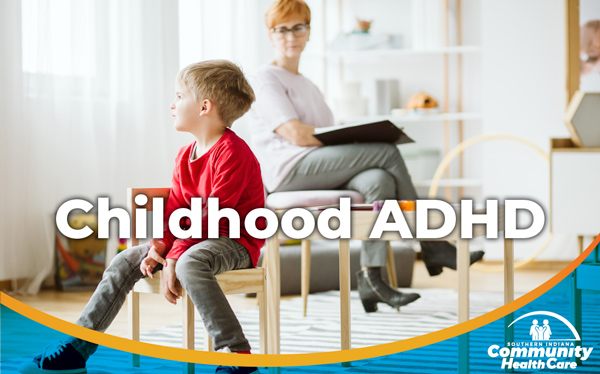What you should know about childhood ADHD

By Meagan Nolley, BSW, SICHC Mental Health Office Manager
What should alert a parent or caregiver to the possibility that a child may have ADHD (Attention Deficit Hyperactivity Disorder)? Here are some important answers and considerations based on a recent presentation by Teresa Faulkner and Sasha Newland, both Licensed Clinical Social Workers serving on SICHC’s mental health team.
ADHD symptoms typically include unusual difficulty in sustained concentration, an inability to plan or finish tasks, talking too much, inattention and distraction, impulsive interruptions, a high need to be in constant motion, and other behaviors. To be certain, many children and teenagers occasionally experience these behaviors as a normal part of mental and emotional development.
Children with ADHD often possess talents like enhanced creativity, resilience or curiosity – all with the capacity to be singular strengths.
Normal behavior or ADHD?
But when challenging behaviors continuously interfere with schoolwork or life with family or friends, it might be time to have a discussion with a medical provider or mental health professional.
Here’s an important fact: while more than 10% of U.S. teens have been diagnosed with ADHD, many children (and later adults) go through life with an undiagnosed condition. That can affect quality of life, success in school (and careers), and interpersonal relationships within a family, work environment, or even later in a marriage.
It is very important to understand that if one is in fact diagnosed with ADHD, that is not somehow a “strike” against one’s success in life. Positive navigation of life with ADHD is indeed possible.
Given the uniqueness and complexity of each person, a qualified professional should make an evaluation and subsequent diagnosis of ADHD. “Self-diagnosing” ADHD and possible self-treatment can lead to issues and unwanted consequences.
Some myths about ADHD can lead people to think that the condition compromises the capacity to lead a happy and fulfilling life. Successful life with ADHD is widely demonstrated, including professionals like Olympic gold medalist Michael Phelps, Harry Potter film actress Emma Watson, NBA basketball legend Michael Jordan, Olympic gymnast Simone Biles, technology legend Bill Gates, singer Solange Knowles, and many more.
If one is diagnosed with ADHD, the goal becomes how to manage the condition and fashion personal pathways that lead to success.
Parents and caregivers are important
The role of parents and caregivers in supporting children and teens diagnosed with ADHD is critical. Children need to be supported and actively accompanied on this journey. SICHC professionals directly engage parents and caregivers, providing tools and techniques (including how to manage stress) to help their child develop successful pathways and learn how to manage day-to-day challenges.
SICHC professionals consider a variety of potentially contributing factors when evaluating for ADHD. These include developmental variations, as gifted children can display traditional symptoms of ADHD. SICHC professionals also evaluate potential neurological, neurodevelopmental, behavioral, societal, and medical conditions or patterns.
Since ADHD in children can affect cognitive, academic, behavioral, emotional and social function, most treatment of ADHD begins with talking with a licensed professional in cognitive behavioral therapy (CBT). After an evaluation, diagnosis, and initial treatment (including ADHD training for parents), medications may be prescribed.
Education about ADHD critical
Far too many myths – including potential unfounded confusion between ADHD and autism – exist. As all children are unique, educating oneself about what ADHD is and the positive means to deal with it remains critically important in supporting someone with ADHD.
Concerned that your child or loved one may be facing ADHD? There is real hope and support! And it’s never too late to seek help.
For more information about SICHC professional mental health team, please visit https://sichc.org/mental-health/ or contact a professional at one of our offices (visit https://sichc.org/locations/ for more information).
The key? Don’t struggle alone – help is available for a successful life!
